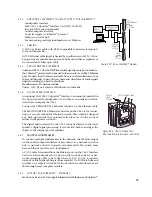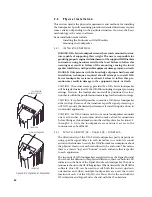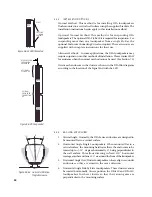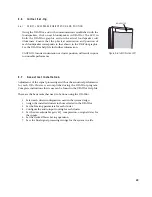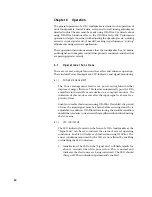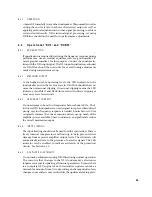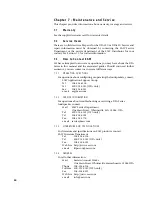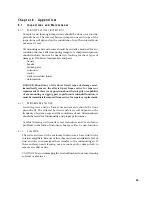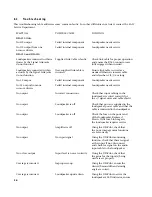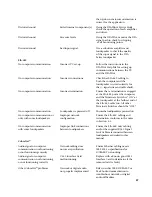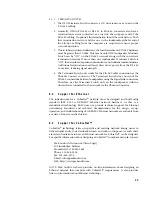
2. Input Clip: If this indication is enabled, random flashing shows
that the audio input signal is clipping the A to D converters at
the input. To correct this condition, reduce the input signal level
at the source. Because the input gain is after the A to D converters,
the DSA input gain adjustment will have no effect on this condition.
NOTE: This is likely an unusual condition because the LED will
respond only if the input signal levels are greater than +24 dBu.
It is recommended that this function normally be disabled.
3. Output Compressor/Limiter Active: If this indication is enabled,
random flashing shows that the amplifier output compressor/limiters
have been activated. Occasional flashing is acceptable. Flashing
more than once every few seconds means the input signal level is
too high. To correct this condition during a performance, reduce
the input signal level at the signal source. If the source levels must
normally be run at such levels, then reduce the DSA input gain
using DSAPilot. Because of possible audio artifacts, this latter
adjustment should not be done during a performance.
NOTE: It may be desirable to disable this indication to avoid the
audience seeing flashing LEDs, particularly on dynamic program.
In this case, determine the source level that triggers the Output
Compressor/Limiters. Monitor and control the source level so as
not to exceed this pre-determined trigger level. This will help
prevent the DSA Output Compressor/Limiters from activating
more than occasionally.
4. System Error: If this indication is enabled, flashing at regular
intervals indicates a fault in the DSA’s electronics. Faults include
malfunctioning amplifiers or DSPs, over temperature, and low battery.
If a fault is indicated, use DSAPilot to determine the exact problem.
NOTE: A battery is used to retain the DSA’s settings when
disconnected from the AC Mains. A low battery requires
replacement by the EAW Service Department or the service
department of the EAW Distributor for your country. Expected
battery life is 10 years without being connected to the AC mains.
5. Identification: Using DSAPilot during initial system set-up, this
function is used to physically identify with which cluster DSAPilot
is communicating. Selecting a cluster or an individual loudspeaker
within a cluster in DSAPilot will turn on the LEDs in the
corresponding enclosures.
6 . 1 . 3 S I G N A L
M O N I T O R I N G
Real-time Input and output signal levels can be monitored using DSAPilot.
31



